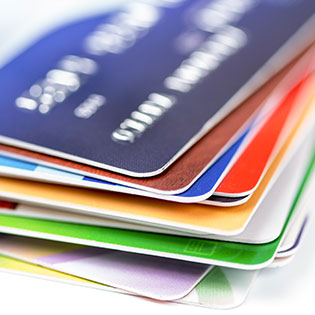
Most people think that filing for bankruptcy will destroy their credit indefinitely, but it’s actually not that difficult to repair your credit after filing. As long as you keep your goal in mind and stick to your plan, you’ll be able to rebuild your credit.
A bankruptcy can remain on your credit report for up to 10 years, so it’s important to follow these steps to start building your credit after bankruptcy:
1. Start with your credit report
You won’t know where you’re going if you don’t know where you are. Get a copy of your credit report so you fully understand your current score. You can get a free copy of your credit report every year from the big players (Equifax, Experian, and TransUnion) at the annualcreditreport.com website. Make sure you check for any errors.
2. Pay everything on time
Did you know that 35% of your credit score is based on your payment history? Paying all your bills on time is one of the best ways to boost your credit score. Check your due dates for all of your bills and set up calendar alerts on your computer and cell phone so you won’t forget. If you can set up automatic online payments, that’s your best bet.
3. If you don’t have a credit card, get one
Many people close or cancel their credit cards during the bankruptcy process. If you don’t have any open cards after your discharge, you should get a new credit card as soon as possible. Seems counter-intuitive, right? You’ll probably have to start with a secured card, which means you have to put down a security deposit to cover initial charges. Once you’ve got the card, pay your balance off every month… you don’t have to keep a balance running to build your credit.
4. Get a new car
After a year or two, it’s a good idea to get a car loan. Obviously, it should be something you can afford, and that you can pay off fairly quickly. Expect a higher interest rate – your credit probably won’t be that great yet. Timely payments will go a long way towards rebuilding your score.
5. Know your limits – and what you can handle
You don’t want to run up the balance on your credit cards – it’s important to keep your balance far below your limit. The important point is to carry the cards and make your payments on time. Even if your card has a low limit, keep your balance down and remember to pay on time!
It’s going to take some patience, but if you stick to the plan, you’ll be able to rebuild your credit. If you feel yourself falling into the old spending habits that got you in financial trouble in the first place, take a step back and remember the plan. If you take the time and effort to follow these steps, you’ll be on the road to a better credit score.
